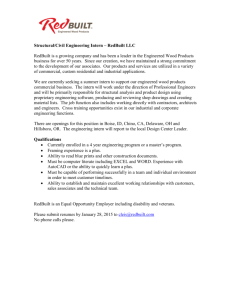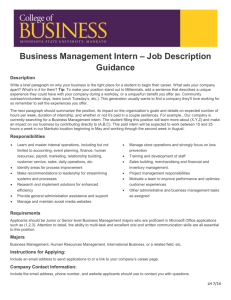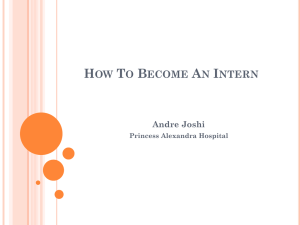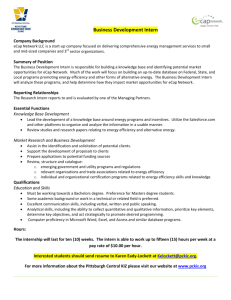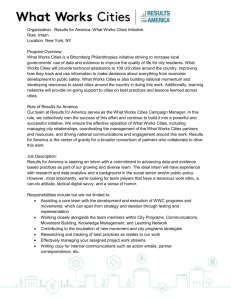mid rotation performance assessment form
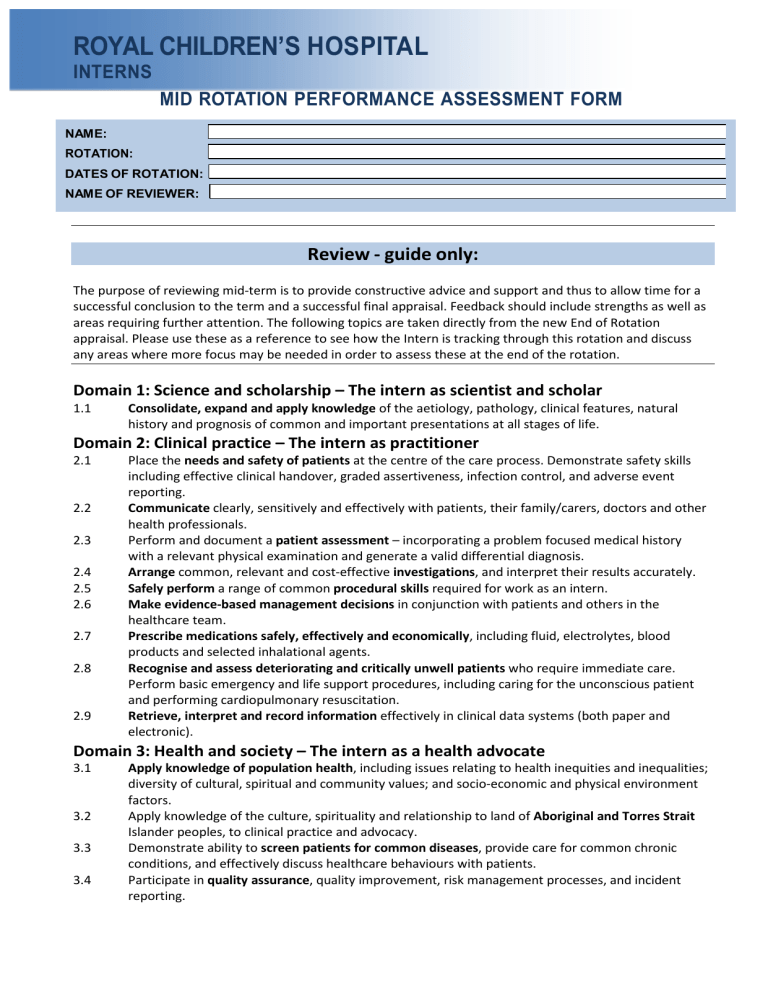
ROYAL CHILDREN
’S HOSPITAL
INTERNS
MID ROTATION PERFORMANCE ASSESSMENT FORM
NAME:
ROTATION:
DATES OF ROTATION:
NAME OF REVIEWER:
Review - guide only:
The purpose of reviewing mid-term is to provide constructive advice and support and thus to allow time for a successful conclusion to the term and a successful final appraisal. Feedback should include strengths as well as areas requiring further attention. The following topics are taken directly from the new End of Rotation appraisal. Please use these as a reference to see how the Intern is tracking through this rotation and discuss any areas where more focus may be needed in order to assess these at the end of the rotation.
Domain 1: Science and scholarship – The intern as scientist and scholar
1.1 Consolidate, expand and apply knowledge of the aetiology, pathology, clinical features, natural history and prognosis of common and important presentations at all stages of life.
Domain 2: Clinical practice – The intern as practitioner
2.1
Place the needs and safety of patients at the centre of the care process. Demonstrate safety skills
2.2
2.3
2.4
2.5
2.6
2.7
2.8
2.9
including effective clinical handover, graded assertiveness, infection control, and adverse event reporting.
Communicate clearly, sensitively and effectively with patients, their family/carers, doctors and other health professionals.
Perform and document a patient assessment – incorporating a problem focused medical history with a relevant physical examination and generate a valid differential diagnosis.
Arrange common, relevant and cost-effective investigations, and interpret their results accurately.
Safely perform a range of common procedural skills required for work as an intern.
Make evidence-based management decisions in conjunction with patients and others in the healthcare team.
Prescribe medications safely, effectively and economically, including fluid, electrolytes, blood products and selected inhalational agents.
Recognise and assess deteriorating and critically unwell patients who require immediate care.
Perform basic emergency and life support procedures, including caring for the unconscious patient and performing cardiopulmonary resuscitation.
Retrieve, interpret and record information effectively in clinical data systems (both paper and electronic).
Domain 3: Health and society – The intern as a health advocate
3.1
3.2
Apply knowledge of population health, including issues relating to health inequities and inequalities; diversity of cultural, spiritual and community values; and socio-economic and physical environment factors.
Apply knowledge of the culture, spirituality and relationship to land of Aboriginal and Torres Strait
3.3
3.4
Islander peoples, to clinical practice and advocacy.
Demonstrate ability to screen patients for common diseases, provide care for common chronic conditions, and effectively discuss healthcare behaviours with patients.
Participate in quality assurance, quality improvement, risk management processes, and incident reporting.
Domain 4: Professionalism and leadership – The intern as a professional and leader
4.1
4.2
4.3
4.4
4.5
4.6
Provide care to all patients in accordance with Good Medical Practice: A Code of Conduct for
Doctors in Australia*, and demonstrate ethical behaviours and professional values including integrity, compassion, empathy and respect for all patients, society and the profession.
Optimise their personal health and wellbeing, including responding to fatigue, managing stress and adhering to infection control to mitigate health risks of professional practice.
Self-evaluate their professional practice, demonstrate lifelong learning behaviours, and participate in educating colleagues.
Take increasing responsibility for patient care while recognising the limits of their own expertise and involving other professionals as needed to contribute to patient care.
Respect the roles and expertise of other healthcare professionals, learn and work effectively as a member or leader of an inter-professional team, and make appropriate referrals.
Effectively manage time and workload demands, be punctual and show ability to prioritise workload to manage patient outcomes and health service functions.
OVERALL COMMENTS
Page 2 of 3
ACTION PLAN (TO BE DISCUSSED WITH INTERN)
AREA REQUIRING
ACTION
SUGGESTED STRATEGIES PERSON
RESPONSIBLE
DATE TO BE
REVIEWED
• SUPERVISORS/INTERNS : You may choose to contact Dr Tom Connell, Supervisor of Intern
Training, Royal Children’s Hospital or Dr Neil Cunningham, Supervisor of Prevocational
Training, St Vincent’s Hospital, to discuss any issues that may require additional support.
• Do NOT return this form to Human Resources or Medical Education at RCH or St Vincent’s.
• This is a Guide for Feedback Only and Not an Appraisal
• A copy of this completed page should be retained by both Reviewer and Intern and referred
to at end of term assessment.
Page 3 of 3

